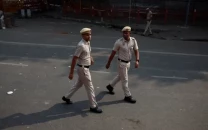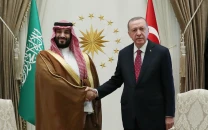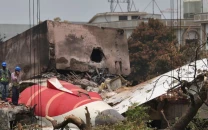Who was Hassan Nasrallah?
Israel claims it has killed Hassan Nasrallah in an airstrike, raising concerns about Hezbollah’s future.
1727523119-0/Untitled-design-(30)1727523119-0-640x480.webp)
Hassan Nasrallah, the longtime leader of Hezbollah, has reportedly been killed in Israeli airstrikes on Beirut, marking a significant moment for the group he has led for 32 years.
Israel claimed responsibility for the strike, which has yet to be confirmed by Hezbollah.
Nasrallah’s death is seen as a substantial blow to the group, which has long relied on his leadership and reputation, particularly during key moments like Israel’s withdrawal from southern Lebanon in 2000 and the 2006 Israel-Lebanon war.
Nasrallah’s Legacy
Hassan Nasrallah’s death marks the end of an era for Hezbollah.
Born in Beirut in 1960, Nasrallah rose from humble beginnings to become one of the most influential figures in the Middle East.
After joining the Amal Movement during the Lebanese Civil War, he later became a founding member of Hezbollah in 1982, following Israel’s invasion of Lebanon.
Nasrallah became Hezbollah’s secretary-general in 1992 after the assassination of his predecessor, Abbas al-Musawi, by Israeli forces.
Under Nasrallah’s leadership, Hezbollah grew from a paramilitary group focused on resisting Israeli occupation into a formidable political force in Lebanon.
Nasrallah’s status as a regional leader was cemented in 2000 when Hezbollah's operations in southern Lebanon led to Israel’s withdrawal, a moment that bolstered his reputation.
His leadership further gained prominence after Hezbollah engaged in a 34-day war with Israel in 2006, which ended in a United Nations-backed ceasefire.
Despite the devastating effects of that conflict, Nasrallah emerged as a symbol of resistance to Israeli aggression.
Nasrallah has long been vocal in his opposition to Israel, often referring to it as the “Zionist entity.”
He recently praised Hamas’ attacks on Israel in October 2023 as a “heroic and great operation,” and Hezbollah’s ongoing rocket and drone attacks on northern Israel have been described as acts of solidarity with the Palestinian cause.
Hezbollah has vowed to continue its campaign until Israel halts its year-long offensive in Gaza.
The Impact of Nasrallah’s Death on Hezbollah
Nasrallah’s death raises serious concerns about Hezbollah’s future. While the group is structured to withstand the loss of individual leaders, his death will be a significant blow to the morale of its members and supporters.
As Amal Saad, a Hezbollah expert at Cardiff University, explained, “The organization is built to absorb these types of shocks... it's built to be resilient and outlast individual leaders.”
However, Nasrallah’s personal charisma and military successes have been central to Hezbollah’s rise, and few leaders within the group can match his popularity.
Replacing Nasrallah will not be easy.
The most likely successor is Hashem Safieddine, a senior figure in Hezbollah’s Jihad Council and Nasrallah’s cousin.
Safieddine has long been groomed for leadership and carries a strong clerical background, but his ability to command the same level of influence as Nasrallah remains uncertain.
Furthermore, any new leader would need the approval of both Hezbollah’s internal factions and its Iranian backers.
If Hezbollah’s leadership becomes fragmented, it could open the door for Iran’s Islamic Revolutionary Guard Corps (IRGC) to take a more direct role in the group’s operations, though this would be a complex and risky move given Iran’s limited understanding of Lebanon’s internal dynamics.
Regional Ramifications and Israeli Strategy
Israel’s targeting of Nasrallah reflects a broader strategy to weaken Hezbollah and disrupt its coordination with Iran.
As Ed Husain, a senior fellow at the Council on Foreign Relations, stated, “Israel no longer seems to fear clashing head-on with Iran... [it] will not fear entering a larger operation.”
Israeli Prime Minister Benjamin Netanyahu has framed the strike as part of a broader effort to neutralize threats from Iran and its proxies in the region.
In a speech on Friday, Netanyahu emphasized that “there is no place in Iran that the long arm of Israel cannot reach,” signaling that Israel is prepared for further escalations.
The assassination of Nasrallah is expected to provoke a strong response from Hezbollah. Israeli officials have warned of a potential major retaliatory attack from the group.
In the wake of the strike, both Lebanese Prime Minister Najib Mikati and Netanyahu returned early from the U.N. General Assembly in New York, signaling the gravity of the situation.
The Threat of Broader Conflict
The death of Nasrallah could ignite a broader conflict in the region, with concerns mounting over the possibility of an Israeli ground operation in Lebanon.
Ed Husain cautioned that such an operation would be “an error in judgment,” urging Israel to rely on advanced technology and tactics rather than conventional invasion strategies, which have failed in the past.
Washington and its allies have called for a ceasefire between Israel and Hezbollah to prevent an all-out war.
The Biden administration has pushed for a 21-day ceasefire proposal, but tensions remain high, with Israeli forces on alert for Hezbollah retaliation.
Ed Husain noted that without addressing the arsenal of weapons held by both Hezbollah and Hamas, it will be difficult for the U.S. to restrain Israel’s military actions.
As the situation continues to evolve, the death of Nasrallah represents a turning point for Hezbollah, the region, and the broader conflict between Israel and Iran.



















COMMENTS
Comments are moderated and generally will be posted if they are on-topic and not abusive.
For more information, please see our Comments FAQ